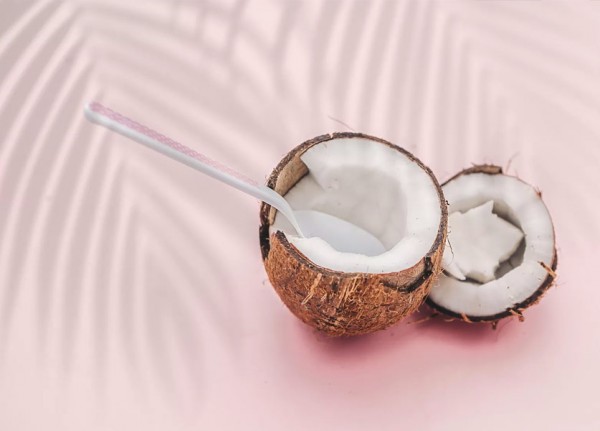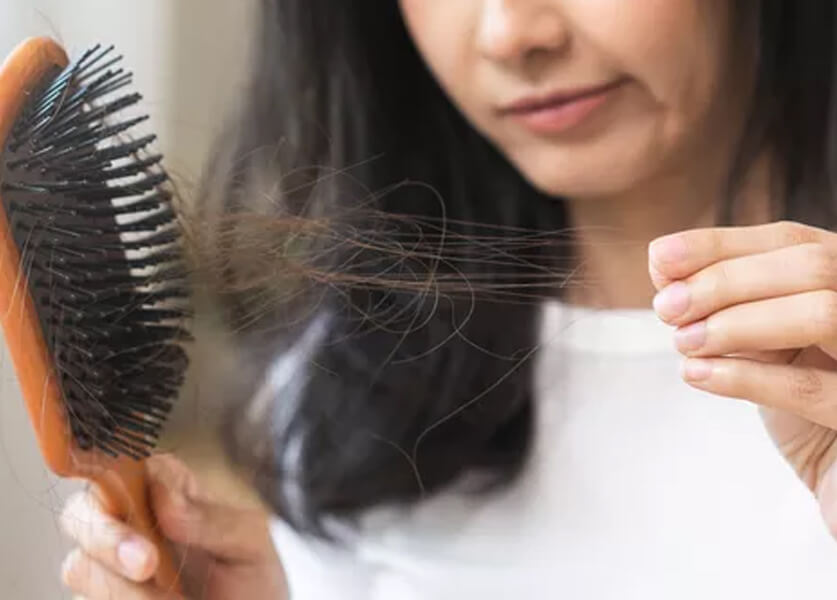BEAUTY
Myths And Realities About The Benefits Of Coconut Oil
Ophélie Ostermann – Madame Figaro
15-April-2021

We often feel confused about coconut oil, whether it has really healthy benefits or any harmful side effects. And we bet you do too, that’s why we will be explaining all about it in the following, to help you know the reality from the myth.
Frequently used in cooking, and as an essential component in cosmetic skin and hair beauty products, coconut oil is gradually making its place in the “super food” section. While it has many benefits, it is not a miracle product. We asked some specialists to enlighten us and review the five main truths and myths about coconut oil.
Coconut oil is good for cooking
TRUE. In addition to bringing an exotic touch to the dish, extra virgin coconut oil stands up to high heat. "Unlike other vegetable oils, such as rapeseed oil or walnut oil, coconut oil does not deteriorate under heat, it does not lose its benefits and does not become toxic", states nutritionist doctor Corinne Chicheportiche-Ayache. "For cooking, it is better than olive oil for example", adds Maïa Baudelaire, nutritionist and specialist in micronutrition.
On the other hand, its nutritional contribution is low. No protein, no vitamin apart from vitamin E (antioxidant) which is present in very small quantities, and no minerals. its only advantage remains that it contains antibacterial agents "which help fight against intestinal infections", dietitian Florence Foucaut says.
Advice: to ensure maximum quality, choose organic and first cold pressed coconut oil.
Rich in saturated fatty acids, it is bad for your health
FALSE. It is true that unlike good fatty acids, saturated fatty acids have always had a bad influence, but " it is not them taht are toxic, but the excessive consumption of some", explains Professor Philippe Legrand, expert at the National Security Agency for food, environmental and occupational health (ANSES) and director of the human nutrition laboratory at Agrocampus Inra, in Rennes. In addition, for twelve years, scientific studies have shown that there are several types of saturated fatty acids, including those "medium chain" present in coconut oil. “Better assimilated by the body, these are not stored. The results then proved that there was no link between the saturated fatty acids in coconut oil and cardiovascular disease,” says the professor.
Be careful, however: so far, research does not allow us to say that it protects against these pathologies either.
Some advice: like all saturated fatty acids, it is dangerous for your health to consume them in excess. It is officially recommended not to consume more than 10% of the energy intake of saturated fatty acids daily.
It limits overweight
TRUE. Be careful, however, of the shortcuts. In moderate quantities, coconut oil does not make you fat, but it is not a slimming ally. It's still oil. "It is said that it does not participate in weight gain due to the presence of saturated fatty acids which very quickly burned, are not found in adipose tissue", specifies Professor Philippe Legrand.
Coconut oil nourishes the skin
TRUE AND FALSE. Like any good quality vegetable oil, “coconut oil softens and helps restore good cohesion between cells. The epidermis does not allow water to evaporate, maintains hydration and does not allow microbes to pass through. It is good for dry skin” says dermatologist Nina Roos”. However, coconut oil is not the best, it’s rather better to use Argan, avocado or prickly pear seed oils, which have more interesting benefits.
Some advice: apply it two to three times a week. Better to store it in the refrigerator and remove it at least 30 minutes before application.
Warning: on the face, it is not suitable for acne prone, combination and oily skin, but only for normal to dry skin.
Coconut oil nourishes the hair
TRUE. The vitamins and fatty acids in coconut oil help nourish your scalp and penetrates the cuticle of the hair. "We observe a sheathing effect, it restructures the outside of the hair fiber", adds the dermatologist.
Some advice: apply as a mask once a week, and leave between 30 minutes and an hour. Rinse and shampoo.
Recommended

Does Over-Washing Your Hair Makes It Fall Out?
25-April-2024

Should You Rinse After Using Micellar Water?
22-April-2024





